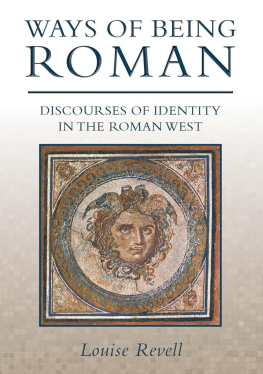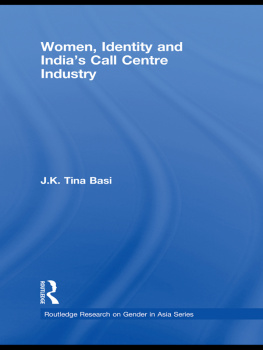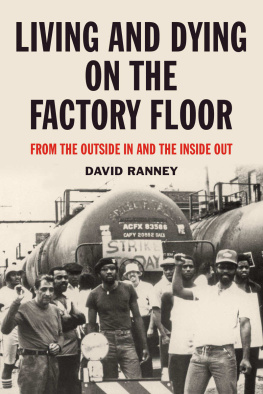Published in 2016 by
Berghahn Books
www.berghahnbooks.com
2016 Leila Zaki Chakravarti
All rights reserved. Except for the quotation of short passages for the purposes of criticism and review, no part of this book may be reproduced in any form or by any means, electronic or mechanical, including photocopying, recording, or any information storage and retrieval system now known or to be invented, without written permission of the publisher.
Library of Congress Cataloging-in-Publication Data
Names: Chakravarti, Leila Zaki, author.
Title: Made in Egypt: gendered identity and aspiration on the globalised shop floor / by Leila Zaki Chakravarti.
Description: New York : Berghahn Books, 2016. | Includes bibliographical references and index.
Identifiers: LCCN 2015046390| ISBN 9781785330773 (hardback: alk. paper) | ISBN 9781785330780 (ebook)
Subjects: LCSH: Clothing trade--Egypt. | Women clothing workers--Egypt. | Clothing workers--Egypt. | Organizational behavior. | Organizational sociology.
Classification: LCC HD9940.E32 C43 2016 | DDC 331.4/8870962--dc23
LC record available at http://lccn.loc.gov/2015046390
British Library Cataloguing in Publication Data
A catalogue record for this book is available from the British Library
ISBN 978-1-78533-077-3 (hardback)
ISBN 978-1-78533-078-0 (ebook)
ACKNOWLEDGEMENTS
Five months after I left my fieldwork site in December 2004, the factory which had been my daily workplace ceased all production, its gates locked, and its premises empty and silent. Yet the clatter and din of industrial sewing machines on the hot shop floor, the piercing female voices of supervisors ringing out across the assembly lines, the flirtatious laughter of the young workforce, are some of the enduring images that remain vivid in my mind and heart, and have sustained me through the years of writing-up and completion.
I am indebted first of all to my gatekeepers: without their advice and assistance I would never have come near a shop floor, let alone had the chance of enjoying the type of fieldwork site I had longed to experience. Mr Ahmed Genedi, Senior Consultant at the Friedrich Ebert Stitfung in Cairo, introduced me to key contacts in Port Said. I especially thank Eng. Fuad Sabet, NGO and business consultant in Port Said, and Mr Magdi Kamal, Director General of the Port Saids Investors Association, for opening doors to the factory where I worked, and facilitating my access by drafting the Arabic paperwork needed for legal and official purposes. I also extend my thanks to Mr Ahmed Sarhan, Chairman of Port Saids Investors Association, and his successor, Mr Mahmud Abbud, for their gracious hospitality throughout my stay and subsequent visits.
Within the academic community, I am deeply indebted to Professor Deniz Kandiyoti, whose intellectual rigour as a scholar of the Middle East region, and whose patience and insights during the course of my research preparation and writing-up, have been pivotal in assisting me to see analytical connections that would otherwise have escaped me. I am also grateful to colleagues in the Centre for Gender Studies and the Department of Anthropology and Sociology at SOAS. Dr Myriem Naji and Dr Anna Portisch are among the close friends whose enthusiasm, creativity and warmth have sustained me since we were postgraduate students together, as has the friendship and encouragement I have received from Prof. Sami Zubeida. The academic list would be incomplete without mentioning the late Professor Cynthia Nelson, who guided me throughout my undergraduate years at the American University in Cairo, taught me the value of keeping detailed descriptive field-notes during my first experiences of fieldwork, and encouraged and supported me when I returned to anthropology later on in life.
On the home front, I owe Bhaskar more than words can say. He turned the scribbled workforce statistics in my notebook and data tables from various reports into the graphs in ); and has generally been a tower of strength all through my fieldwork, my thesis writing-up and the long stages of getting my manuscript ready for publication, with its endless drafts (many of which he painstakingly proof-read) and moments of doubt. I wont go further, as I know what I have written will already embarrass him.
There is no easy way to end these brief acknowledgements without wishing, at this point, that the course of events in Fashion Express (the fictitious name I have used to protect the identity of the factory) had turned out to be different. Its future was uncertain from the outset, and as such no different from other garment factories elsewhere encountering the tough and punishing realities of both global and local competition. Those to whom I accordingly feel the greatest debt are, inevitably and regrettably, precisely the individuals whose names I am required to omit in order to preserve their anonymity.
My most profound gratitude is reserved for the proprietor of Fashion Express, whose generosity of spirit remains unrivalled. Given the financial problems besetting his firm, granting me research access must have been a far from easy decision. With hindsight, it was an act that took immense courage, motivated by a deep personal conviction that the factory exposes in his phrase without retouche the strengths and painful contradictions found in Egypt a decade ago, and still part of its living reality. On occasions his subdued mutterings made me only too aware of his opinion of the seemingly ridiculous lengths to which ethnographic methods of fieldwork seemed required to go. This was mingled with silent admiration of, and support for, the unusual requirements of an educational system that dispatches students to work on a shop floor in order to earn their degrees!
To the workers in all the units I have been part of, and to their supervisors, my affection speaks for itself. In my mind, as much as in theirs, Fashion Express connected us, and gave us an ism (name), a shop floor language of our own making, and a collective identity that set us apart from others in the Zone. The resilience of the shop floors fiercely independent spirit mandated by physical space, production, webs of social relationships and the economic necessity of making a living is what this ethnography aspires to capture. I am proud to share the spirit in which Lvi-Strauss concluded his 1960 Inaugural Lecture to the Collge de France, paying tribute to the Amazonian and other peoples amongst whom he had done his early seminal fieldwork, when he said:
To them, I have incurred a debt, which I can never repay, even if I were able to give some proof of the tenderness which they inspire in me and of the gratitude which I feel towards them by continuing to be as I was among them, and as I would hope never to cease from being: their pupil, their witness. (Levi-Strauss 1967: 53)
Leila Zaki Chakravarti
Port Said, Cairo and London





